SQE 1
1/43
There's no tags or description
Looks like no tags are added yet.
Name | Mastery | Learn | Test | Matching | Spaced |
|---|
No study sessions yet.
44 Terms
What is the Law Society?
A representative body of solicitors in England and Wales.
What is the Solicitors Regulation Authority?
The regulatory body for solicitors in England and Wales. It is responsible for ensuring that solicitors meet high standards of professional conduct, protecting clients, and maintaining the integrity of the legal profession. The SRA sets rules and guidelines for solicitors and handles complaints against them.
Code of Conduct for Solicitors (2023)
Flashcard:
A set of rules and guidelines that govern the professional behaviour and ethical standards expected of solicitors in their practice, ensuring integrity, competence, and respect for clients and the legal system.
What are the key focus areas of the SRA’s Standards and Regulations (StaRs)?
Education
Entry standards
Ongoing competence
Ethical behaviours
Give an example of when a solicitor has been struck off by the SRA.
Example:
In 2020, a solicitor was struck off after being found guilty of misappropriating client funds. The solicitor had diverted over £150,000 from client accounts into personal use without consent. Following an investigation by the Solicitors Regulation Authority (SRA), the disciplinary tribunal ruled that the solicitor's actions constituted a serious breach of professional conduct, leading to immediate removal from the roll of solicitors.
What are the key considerations when assessing whether a solicitors has breached the code of conduct (of solicitors or firms)?
Intent
Harm
Vulnerability of client
Experience of individual
Their regulatory history
What factors does the SRA consider when deciding whether to strike off a solicitor?
The SRA considers factors such as serious misconduct, criminal convictions, breaches of professional standards, dishonesty, failure to comply with regulatory requirements, and any actions that undermine public confidence in the legal profession.
What’s the difference between the SRA’s principles (2018) and the Code of Conduct for Solicitors (2023)?
The SRA’s principles (2018) comprise the fundamental rules of ethical behaviour, while the Code of Conduct of Solicitors (2023) sets out outcome-focused standards of professionalism.
True or False: The SRA’s Principles (2018) only apply to solicitors acting in a professional capacity.
False, the SRA’s Principles (2018) also apply to individuals acting in a private capacity where relevant. Ex: If a solicitor is convicted of unrelated fraudulent activity, this may still be a breach due to the impact on public trust and confidence.
Who is in scope of the SRA’s Principles (2018)?
All individuals authorised by the SRA to provide legal services.
Who is in scope of the SRA’s Code of Conduct of Solicitors (2023)?
Individual solicitors.
Does the SRA’s Code of Conduct of Solicitors (2023) apply to in-house lawyers?
Yes.
What happens when a solicitor is suspended by the SRA?
Example:
During the suspension period, they are prohibited from practicing law, representing clients, or providing legal advice.
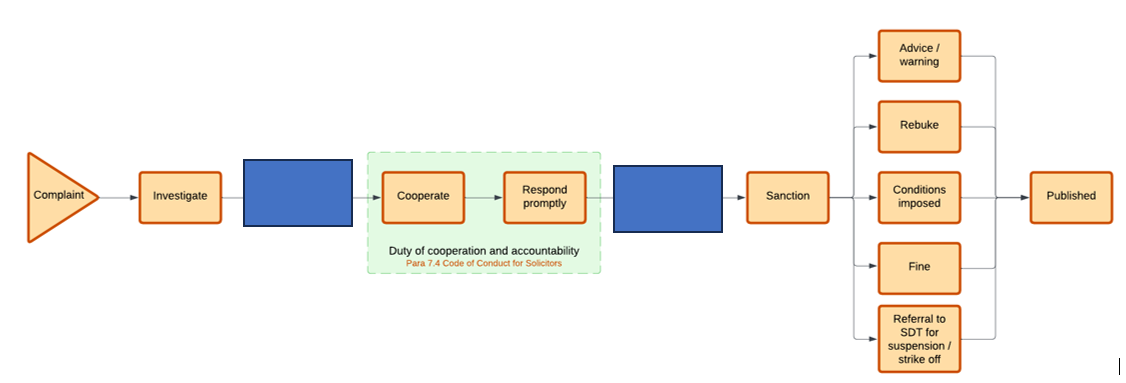
What steps are missing in this process flow for SRA investigations into solicitors?
(1) Notify, (2) Finding
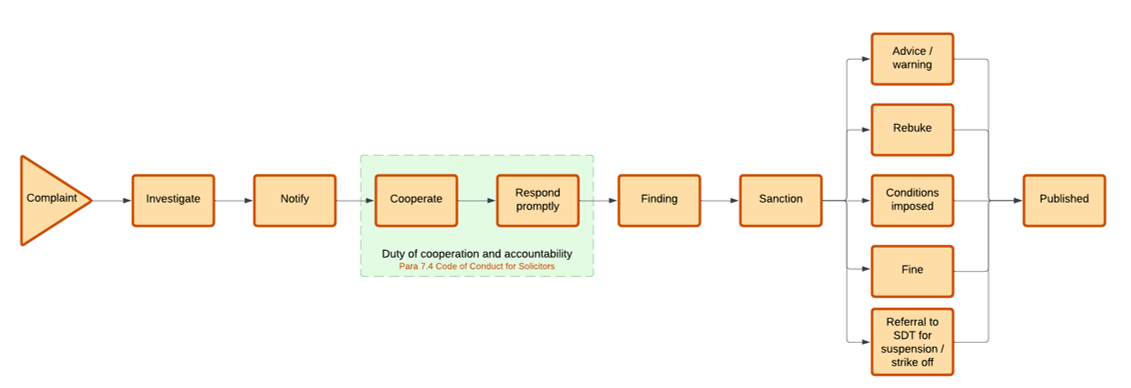

What steps are missing in this process flow for SRA investigations into solicitors?
(1) Respond promptly, (2) Published
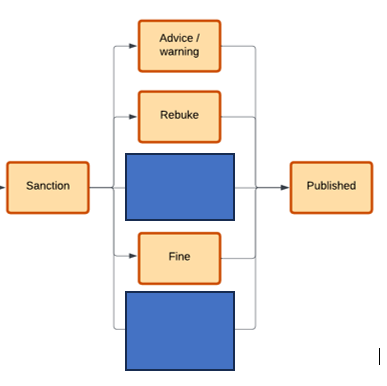
What are the missing sanctions the SRA might impose on a solicitor following a finding against them?
(1) Conditions imposed, (2) referral to the solicitors disciplinary tribunal (SDT) for suspension / strike off
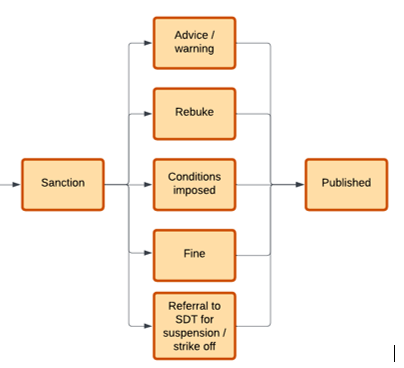
Upon engaging a client, what four things do solicitors need to inform the client about in writing?
Right to complain about services and charges
How to complain
Who to complain to
When the client can escalate to the Legal Ombudsman
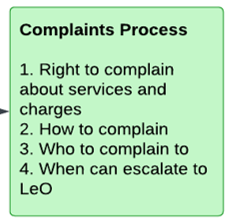
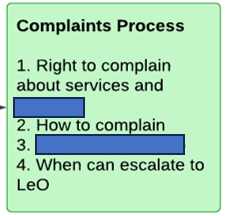
What is missing from this list of things solicitors must inform clients about in writing at the point of engagement?
(1) Charges, (2) Who to complain to
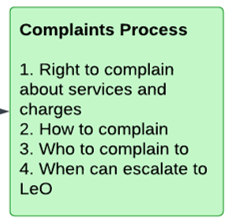
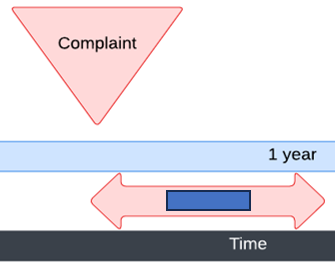
After receiving a complaint from a client, how long do solicitors have to handle it?
8 weeks, starting from when the client made the complaint.
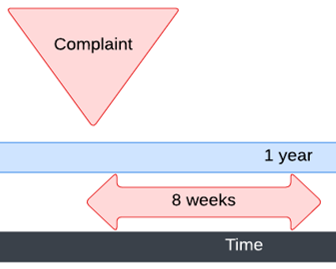
Can solicitors charge clients for handling their complaints?
No, they must handle complaints free of charge. They must also do so promptly and fairly according to the Code of Conduct for Solicitors (2023).
If a solicitor cannot resolve a complaint with the client, what two main things must they inform the client about in writing?
Their right to escalate their complaint to the Legal Ombudsman, and how and when to do so.
Having informed them that they cannot resolve the complaint, direct the client to an ADR-approved body, stating whether the solicitor uses the scheme.
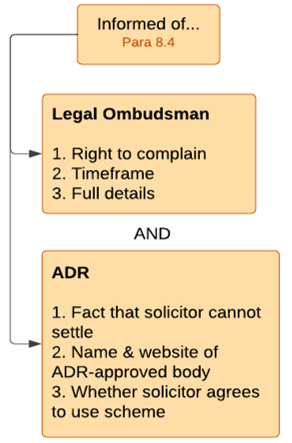
What is the timeframe for complainants escalating unresolved complaints to the Legal Ombudsman? And when does the clock start running?
Complainants have one year from the time the alleged act/omission was committed (or when they could reasonably have known about it).
In what circumstances may the Legal Ombudsman extend the time period within which complainants should escalate complaints to them?
If it is fair and reasonable to do so.
True or False: The Legal Ombudsman is part of the SRA?
False, they are separate entities.
Can the Legal Ombudsman charge complainants a reasonable fee for handling their complaint?
No, it is a free service.
What power does the Legal Ombudsman have to dismiss complaints?
If complainant did not suffer “significant” loss, distress, inconvenience, or detriment.
True or False: Complainants must exhaust the solicitors’ internal complaints process before taking their complaint to the Legal Ombudsman?
False, in exceptional circumstances complainants can go directly to the Legal Ombudsman. For example, if there has been an irretrievable breakdown in the solicitor-client relationship.
True or False: Only individuals can use the Legal Ombudsman.
False, small organisations and micro-enterprises can use the Legal Ombudsman too.
True or False: A company qualifies as a ‘micro-enterprise’ for the purpose of being able to use the Legal Ombudsman if it has a turnover of < 2 million euros?
True, provided it has < 10 staff members as well.
Can a small public body use the Legal Ombudsman?
No, no matter how small, public bodies cannot use the Legal Ombudsman.
What counts as a ‘small organisation’ for the purpose of being able to use the Legal Ombudsman?
The organisation must have less than £1million in assets or annual turnover. For example, a small trust, association, club, or charity.
Who (if anyone) can escalate a complaint to the Legal Ombudsman if the complainant dies?
Provided that the complainant did not already refer the complaint to the Legal Ombudsman, either of the following can pursue the complaint on their behalf:
Personal representative of their personal estate.
Residuary beneficiary of their personal estate.
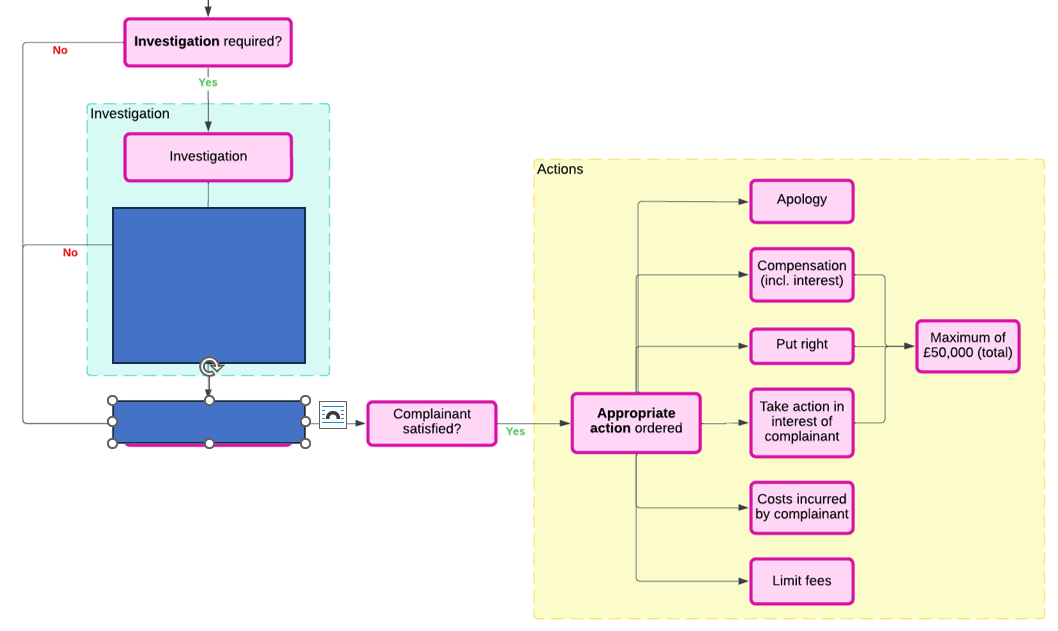
Which steps are missing in this process flow of the Legal Ombudsman’s complaints handling?
(1) hearing required?, (2) hearing, (3) determination
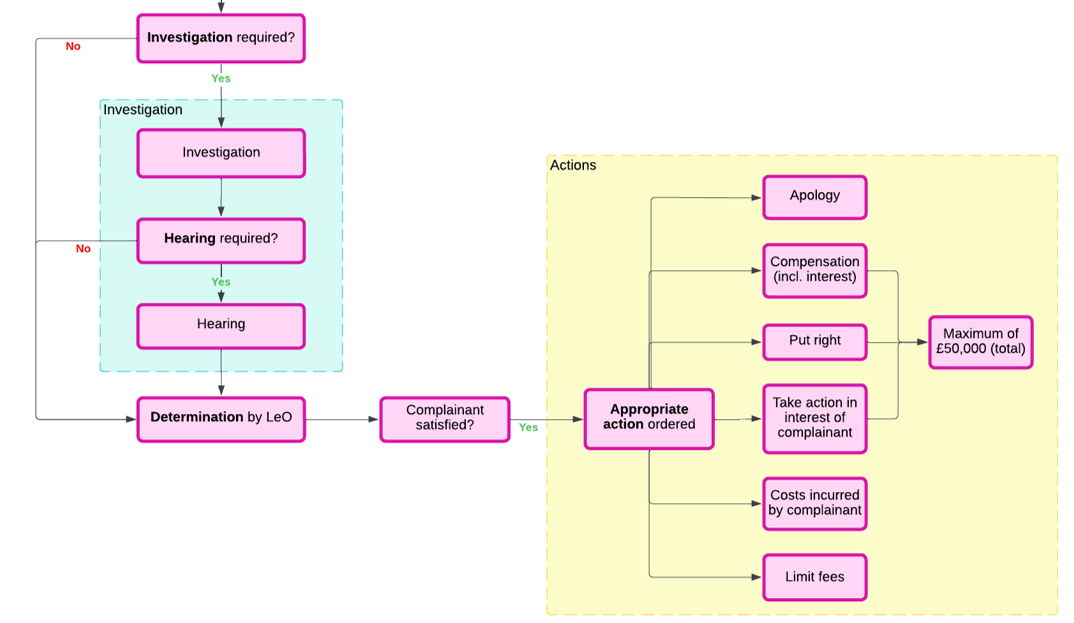
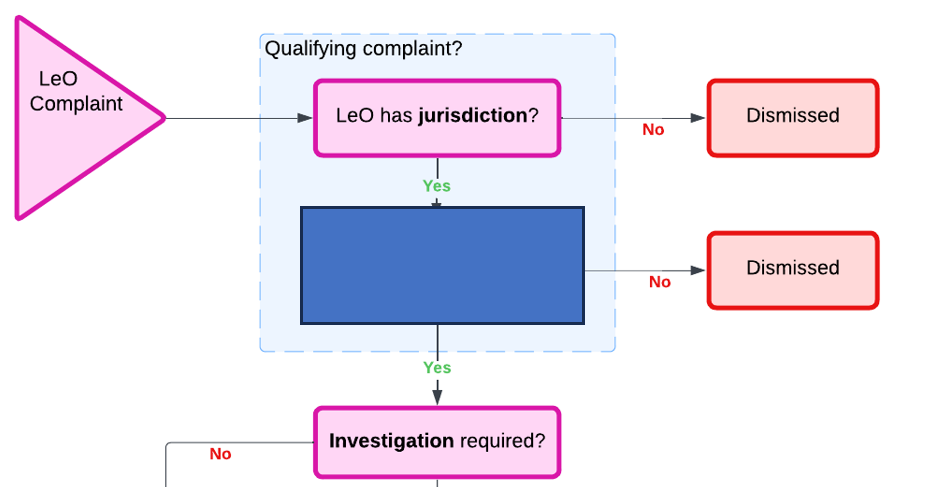
Even if the Legal Ombudsman has jurisdiction in principle to handle a claim, why might they refuse to handle it?
The Legal Ombudsman may dismiss a claim if the complainant did not suffer a significant loss, distress, inconvenience or detriment.
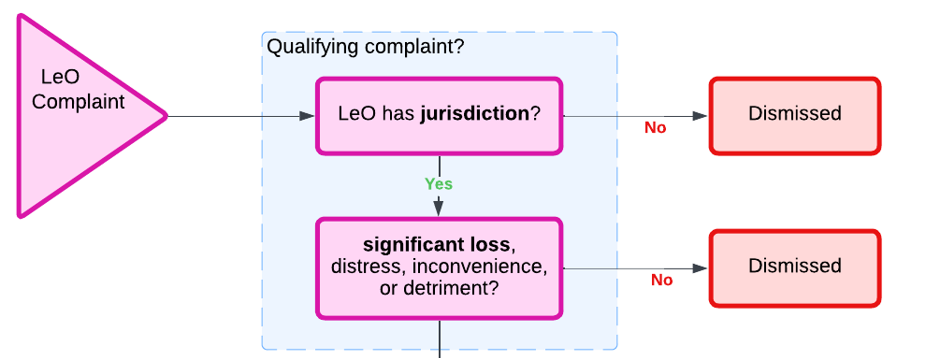
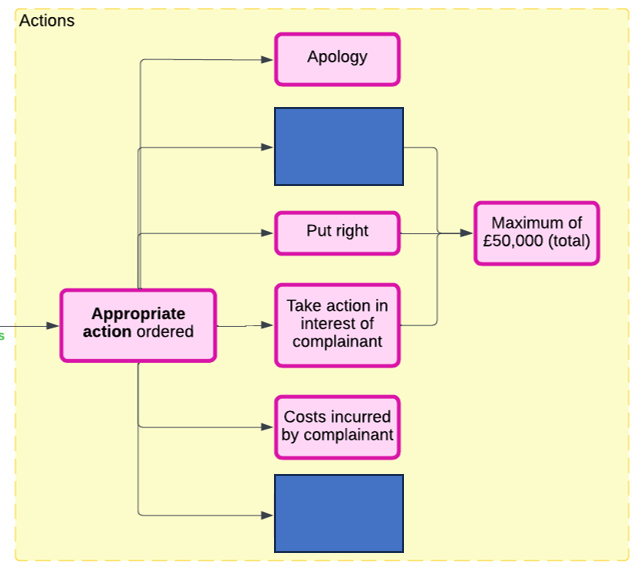
Which actions are missing from the list of actions available to the Legal Ombudsman following a determination of a complaint?
(1) Compensation (with interest), (2) limit fees
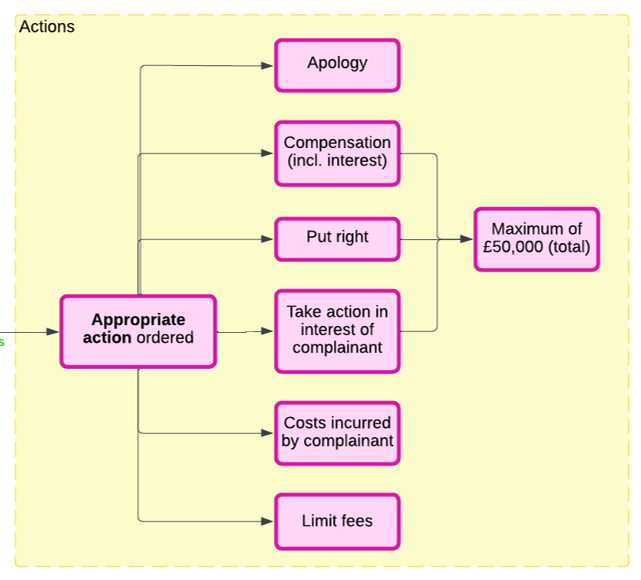
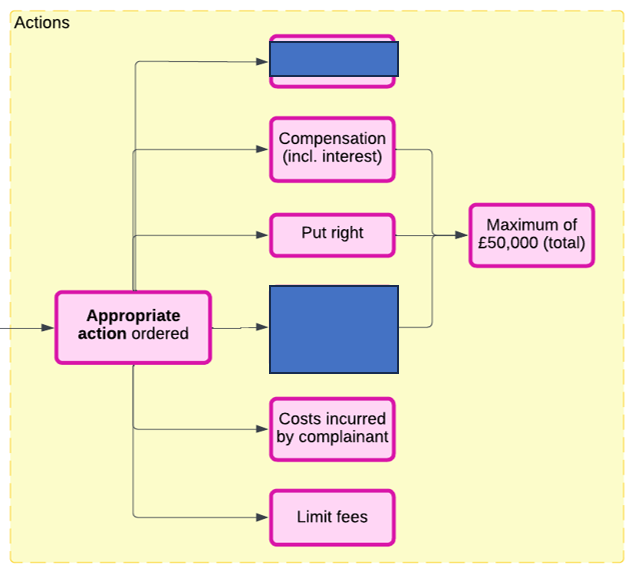
Which actions are missing from the list of actions available to the Legal Ombudsman following a determination of a complaint?
(1) Apology, (2) Take action in interest of complainant
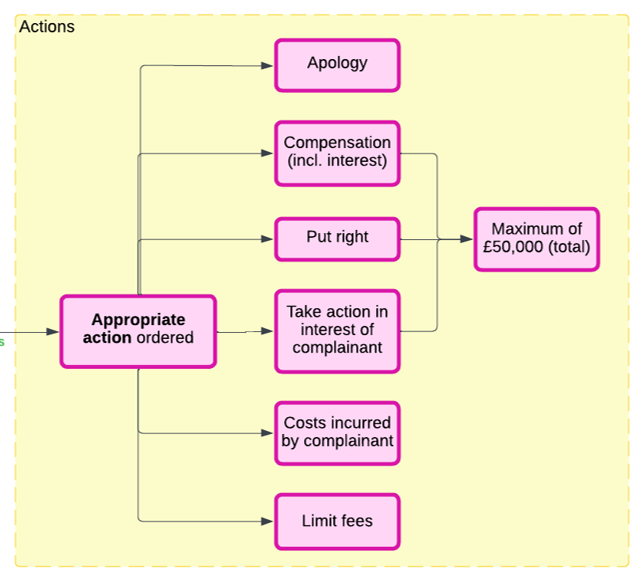
True or False: The combined maximum total the Legal Ombudsman may award for (a) compensating complainant, (b) putting right, and (c) taking action in interest of complainant is £25,000.
False, the maximum total is £50,000.
What is the Solicitors Disciplinary Tribunal (SDT)?
A specialized body that adjudicates complaints against solicitors in England and Wales. It has the authority to impose sanctions, including fines, suspensions, or striking off from the roll of solicitors. The tribunal ensures adherence to professional standards and ethics within the legal profession. Cases are typically referred by the Solicitors Regulation Authority (SRA).
Does the Solicitors Disciplinary Tribunal (SDT) have investigative powers?
No, but it can hold hearings and make determinations regarding disciplinary actions. Its powers are primarily focused on adjudicating cases in the same manner as law enforcement agencies.
How are members of the Solicitors Disciplinary Tribunal (SDT) appointed?
Members of the SDT are appointed by the Master of the Rolls.
True or False: The standard of proof applied by the SDT is ‘beyond reasonable doubt’ (i.e. the criminal standard of proof).
True, the standard applied is the criminal standard of proof.
What powers to sanction solicitors does the SDT have?
The Solicitors Disciplinary Tribunal (SDT) has the following powers to sanction:
Fines: Imposing monetary penalties on solicitors.
Suspension: Temporarily suspending solicitors from practice.
Striking Off: Removing solicitors from the roll, effectively barring them from practicing law.
Exclusions: From legal aid work.
Can a solicitor appeal an SDT judgment? If so, how and when?
Yes, they can appeal to the Administrative Court of the RCJ within 21 days of the SDT’s judgment.
True or False: The Solicitors’ Compensation Fund exits to reimburse solicitors who have successfully defended a complaint and have suffered a loss when doing so.
False, the Solicitors’ Compensation Fund exists to reimburse clients for financial losses caused by the solicitor’s dishonesty or failure to account for client’s money where not covered under indemnity insurance.